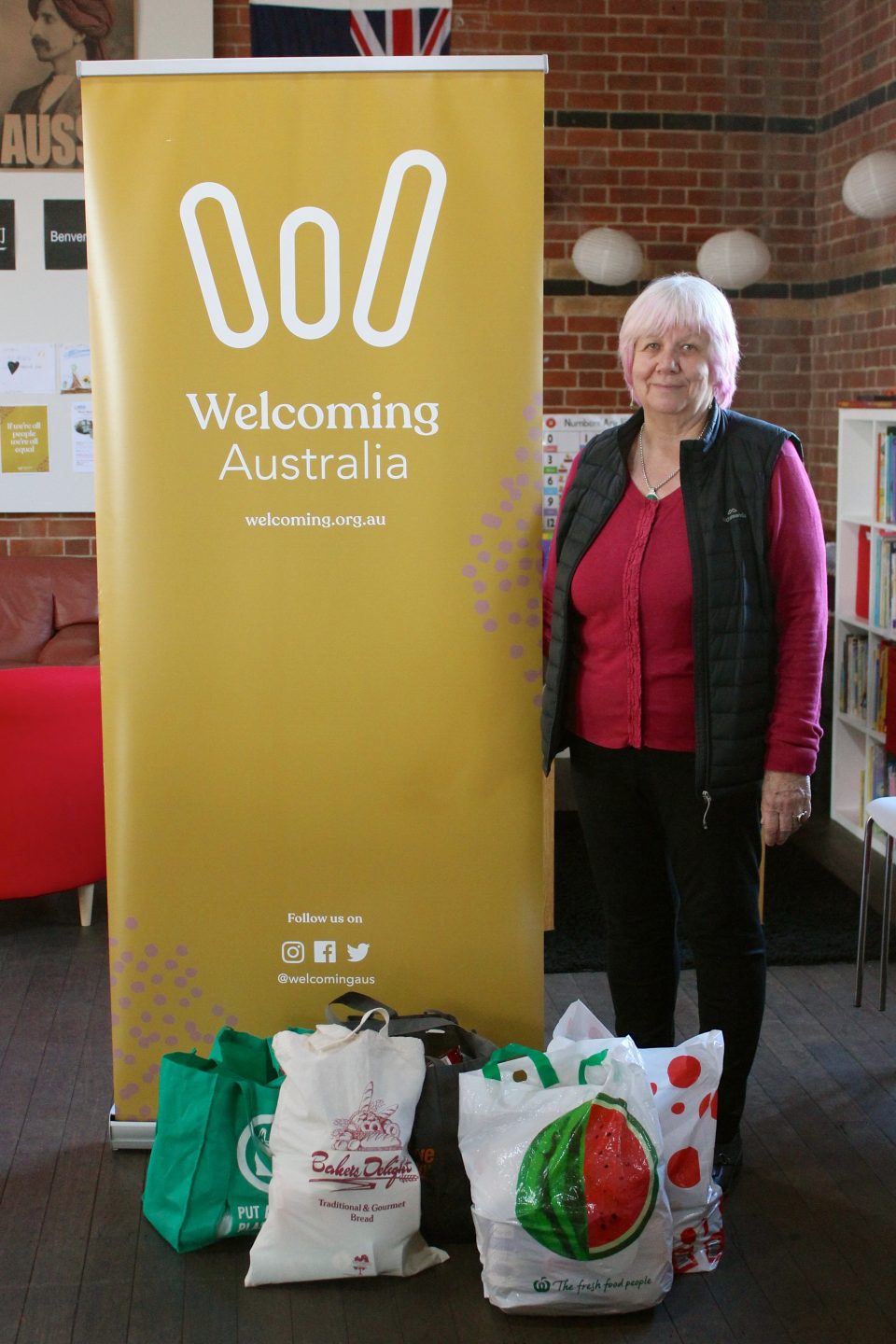News
Rain, hail or shine: heart of Welcoming Centre beats on for Bowden’s refugees
18 May 2020

The Welcoming Centre at Bowden has always been committed to changing the conversation about the importance of our migrant communities—now it is also having to change gears in order to meet the new and emerging needs of Adelaide’s minority groups most impacted by COVID-19.
“We are targeting our support towards people on temporary visas—including people seeking asylum, refugees, international students and migrant workers—who are not eligible for any government assistance because of their visa status,” says Carole Strong, Centre Manager.
“The COVID-19 outbreak has brought about additional hardship for this section of our community, many of whom have lost their sole source of income and are not in a position to secure a new one—and who are now struggling to pay for rent and food.”
As an initiative of Welcoming Australia, the Welcoming Centre is unique to Adelaide and was established in 2013 to cultivate a culture of welcome and equal opportunity for Australia’s migrants through services and activities that promote belonging, inclusiveness and cross-cultural relationships.
For the past eight years the Centre has operated a robust program of English classes, community dinners, picnics, gardening workshops and emergency food relief services. This is in addition to providing referrals to other support services such as employment agencies and financial counsellors, to help recently arrived migrants become established citizens with means and purpose.
“We exist to help meet the practical, emotional and social needs of new Australians so that they may contribute and thrive in their adopted homeland,” Carole says.
Now the role of the Centre is more important than ever, though its central function and model of support delivery has had to change quickly in a COVID-19 climate and staff and volunteers have had to adapt accordingly.
“We are thinking fast and acting fast to ensure that the most at-risk members of our community do not slip through the COVID-19 cracks, which represent a new kind of threat that we have never experienced before,” says Carole.
Food security has become the Centre’s number one priority.
“One of the biggest impacts of COVID-19 has been a reduced access to food, a basic human right,” Carole says.
“In response, we are now developing our own home delivery service for food and an accompanying food home delivery app for our volunteers, which will help them get to the people who need us most, faster.
“We are also providing emergency food supplies to existing outreach groups with established distribution networks to widen our reach and impact, and inviting those in need of food to come and collect food vouchers or food donations from our premises in Bowden.”
Though the demand for food has been unprecedented, the Centre has been buoyed by an outstanding level of generosity from members of the business and wider Adelaide community who have dug deep to provide support, often turning up in inclement weather to help unload food and supplies.
“The response from the local community during this time has been inspirational,” says Carole.
“We now have over 5,000 followers on Facebook and every time we put the call out for help, we are amazed by the prompt and practical ways that Adelaide steps up for us.”
In addition to food relief, the Centre has traditionally played a central role in maintaining a sense of connection among Adelaide’s displaced communities, so that they may build friendships and a network of support. The ways in which the Centre maintains this level of connection has also had to change due to the prevailing social distancing mandate.
“Though we have had to cancel all of our group gatherings for the time being, we are continuing to check-in regularly with long-standing members of our community and operate our Garden Project with a reduced number of outdoor volunteers,” Carole says.
“We’ve also partnered with the Centre of Democracy and their ‘Stitch and Resist’ program, through which members of our community can create works of cross-stitch that feature important social, cultural and political messages.
“The idea is to use of craft as a strategy for activism, connection and self-care while we are apart, and to help people maintain their voice even when public life has ground to a standstill and they may feel financially or socially disempowered.
“We’re also in the preliminary stages of exploring the delivery of English lessons online.”
Activities such as those above underscore the determination, strength and ingenuity of the Welcoming Centre in an unchartered social landscape.
“While the future is uncertain and long-term economic recovery may be far off, our community spirit is at its highest and we thank all those who continually help us to help those who need us the most,” says Carole.
For those who wish to support the Welcoming Centre, donations of food, petrol vouchers, gift cards, toiletries, baby formula and nappies are the most useful and can be dropped off at the back door to the Welcoming Centre in Bowden on Tuesdays and Thursdays between 10.00am-4:00pm (address below).
“Our communities don’t necessarily eat a traditional Australian diet, so the best type of food to donate includes basmati and long grain rice; long-life milk; green or black tea; sugar; honey; coffee; cooking oil; pasta; flour; and tinned tomatoes, chick peas, sweetcorn, mushrooms and fish,” Carole says.
Financial donations can be made via the Welcoming Australia website.
Further enquiries can be directed to the Welcoming Centre in Bowden via the details below:
Welcoming Centre
100 Drayton Street
Bowden, South Australia, 5007
Tel: 08 8346 3843
Email: [email protected]
Facebook: www.facebook.com/WelcomingCentre/

